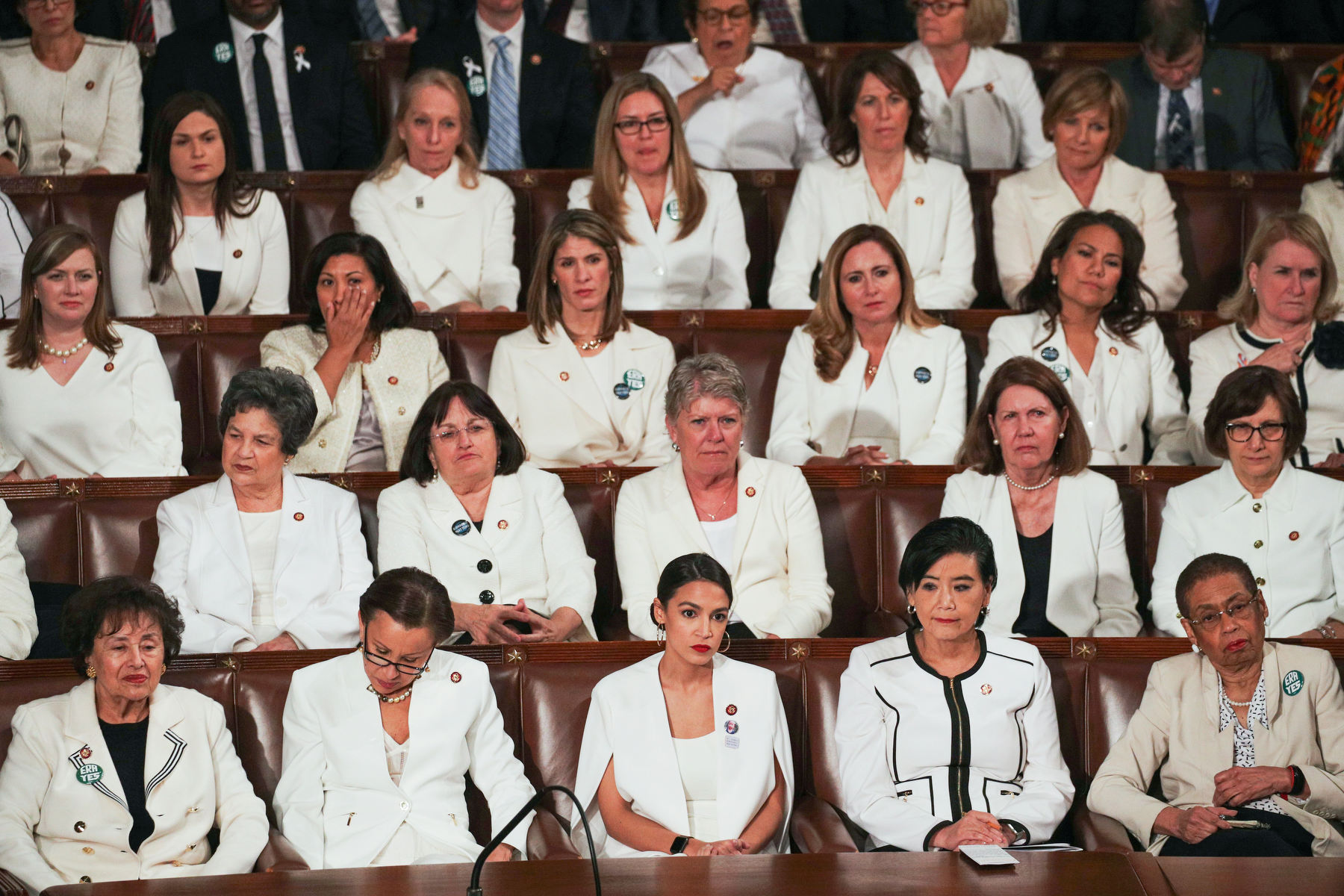Your trusted source for contextualizing Election 2024 news. Sign up for our daily newsletter.
The number of women running for House seats dropped 20 percent this year — and far fewer Republican women made it past their primaries than in 2022, according to analysis from the Center for American Women and Politics (CAWP).
There’s still a chance that the number of women in the chamber passes the current record of 126. At least 112 women running this year are favored to win their races, according to Cook Political Report, and 27 are in competitive races. With shorter terms and a larger chamber, the House of Representatives usually has the most potential to up women’s representation in Congress.
But the past few cycles had sustained the massive growth of women candidates seen in 2018, and the number of Republican women running had steadily grown since 2014.
Part of the drop in candidates comes from circumstances around this specific election cycle — and the last one, which followed the redrawing of district lines that happens every 10 years.
“Post-redistricting, you tend to have more people put their names forward, more competitive races, things like that,” said Kelly Dittmar, director of research at CAWP. Additionally, incumbents have an easier time staying in office, and only 30 Republican women representatives are up for reelection this year.
But Republican women also had the lowest win rate in House primaries, and they specifically struggled to advance in open-seat competitions. Women are only 16 percent of Republican House nominees this year. In contrast, 46 percent of Democratic House nominees are women.
There are two questions here: Why do fewer Republican women run for the House, and why are they less likely to advance past the primary stage?
Campaign funding is a struggle tied to gender, regardless of party. Running for office is expensive, and finances are instrumental in getting the word out about candidates. An analysis of donations in the 2022 campaign cycle showed women disproportionately give to other women. The gender wealth gap means women candidates are less likely to have the funds to finance a run and also might rack up fewer donor dollars.
Women are also less likely to believe they are qualified to run for office than men, said Meredith Conroy, a professor of political science at California State University, San Bernardino, who studies gender and politics. Support like candidate trainings and financial backing can increase the perception that women candidates can win.
There are fewer groups dedicated to supporting Republican women running for office, especially compared with resources available to progressive candidates.
“PACs supporting women in the GOP are under-resourced, and less integrated into their party's donor network,” Conroy said. “That said, I think these organizations are vital, and the Republican Party's reluctance to bring them into the fold is why their candidates struggled this cycle.”
These groups, such as VIEW Pac, Maggie’s List and Winning for Women, are less organized, sometimes endorsing opposite candidates in the same race.
Research has shown Republicans are less likely than Democrats to support diversity initiatives around elected representation. Part of this is a partisan difference in attitude toward the lack of women’s representation in office. The same report showed Republicans were less likely to cite systemic barriers and more likely to say women’s doubts or preferences were the cause of gender disparities.
Republican Party leaders also face little pressure to increase gender diversity. Conroy pointed to a 2023 study from the Pew Research Center showing that only 29 percent of Republican and Republican-leaning people think there are too few women in politics.
“Republican voters are also more likely to say that men make better political leaders than women,” Conroy said. “It's not a majority, but Republican voters harbor more sexist attitudes than Democratic voters, so running as a woman in that environment is a unique challenge.”
The Republican Party’s renewed push against diversity, equity and inclusion ultimately hurts Republican women running for office, because if candidates talk about gender they can be accused of “identity politics,” Conroy said.
Conroy remembers seeing how a tweet from Nikki Haley about becoming the first woman president was relentlessly trolled by right-leaning accounts that claimed she was playing “the woman card.”
It’s not necessarily that the Republican Party doesn’t support women candidates, Dittmar said, but rather that it isn’t a focus.
Some academic research has shown Republican women have to push back against ideas that women are less conservative, according to Dittmar. Conroy said political scientists have also identified “woman-friendly districts” but those tend to lean Democratic.
All of these factors stack up against more Republican women in Congress — which makes gender parity a far-off goal.
“It is going to be very hard to get to gender parity if you only have that parity on one side of the aisle,” Dittmar said.
To check your voter registration status or to get more information about registering to vote, text 19thnews to 26797.





